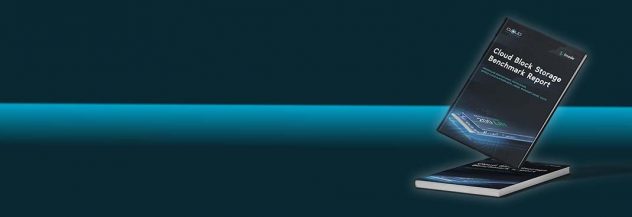Guides - Deploying Kepler through the Linode Marketplace
Quickly deploy a Compute Instance with many various software applications pre-installed and ready to use.
Kepler is a powerful drag & drop WordPress website builder with all-new website style filters that instantly change the look and feel of your website.
Deploying a Marketplace App
The Linode Marketplace allows you to easily deploy software on a Compute Instance using the Cloud Manager. See Get Started with Marketplace Apps for complete steps.
Log in to the Cloud Manager and select the Marketplace link from the left navigation menu. This displays the Linode Create page with the Marketplace tab pre-selected.
Under the Select App section, select the app you would like to deploy.
Complete the form by following the steps and advice within the Creating a Compute Instance guide. Depending on the Marketplace App you selected, there may be additional configuration options available. See the Configuration Options section below for compatible distributions, recommended plans, and any additional configuration options available for this Marketplace App.
Click the Create Linode button. Once the Compute Instance has been provisioned and has fully powered on, wait for the software installation to complete. If the instance is powered off or restarted before this time, the software installation will likely fail.
To verify that the app has been fully installed, see Get Started with Marketplace Apps > Verify Installation. Once installed, follow the instructions within the Getting Started After Deployment section to access the application and start using it.
NoteEstimated deployment time: Kepler should be fully installed within 2-5 minutes after the Compute Instance has finished provisioning.
Configuration Options
- Supported distributions: Debian 10
- Recommended minimum plan: All plan types and sizes can be used.
Kepler Options
- Email address (required): Enter the email address you wish to use when configuring the WordPress admin user, generating SSL certificates, and optionally creating DNS records for a custom domain.
- Admin Username (required): Username for your WordPress admin user account.
- Admin Password (required): Password for your WordPress admin user account.
- MySQL
rootpassword (required): The root password for your MySQL database. - WordPress Database Password (required): The root password for your WordPress database.
- Website Title: Enter a title for your WordPress site.
Limited User (Optional)
You can optionally fill out the following fields to automatically create a limited user for your new Compute Instance. This is recommended for most deployments as an additional security measure. This account will be assigned to the sudo group, which provides elevated permission when running commands with the sudo prefix.
- Limited sudo user: Enter your preferred username for the limited user.
- Password for the limited user: Enter a strong password for the new user.
- SSH public key for the limited user: If you wish to login as the limited user through public key authentication (without entering a password), enter your public key here. See Creating an SSH Key Pair and Configuring Public Key Authentication on a Server for instructions on generating a key pair.
- Disable root access over SSH: To block the root user from logging in over SSH, select Yes (recommended). You can still switch to the root user once logged in and you can also log in as root through Lish.
Additional Security Options (Optional)
- Configure automatic security updates: Select
Yesto have the system automatically update WordPress with the latest security updates. SelectNoto if you wish to manage all updates manually. - Use fail2ban to prevent automated intrusion attemps? Select
Yesto install fail2ban. SelectNoto not install fail2ban during installation. You can install this at a later time.
Custom Domain (Optional)
If you wish to access your application using a custom domain, fill out the following fields.
- Linode API Token: If you wish to use the Linode’s DNS Manager to manage DNS records for your custom domain, create a Linode API Personal Access Token on your account with Read/Write access to Domains. If this is provided along with the subdomain and domain fields (outlined below), the installation attempts to create DNS records via the Linode API. See Get an API Access Token. If you do not provide this field, you need to manually configure your DNS records through your DNS provider and point them to the IP address of the new instance.
- Subdomain: The subdomain you wish to use, such as www for
www.example.com. - Domain: The domain name you wish to use, such as example.com.
- Do you need an MX record for this domain? Check
Yesif you plan on using WordPress to send email. The installer, along with yourAPI Token(required) sets up the necessary MX records in the DNS Manager. SelectNoif you do not plan on using WordPress to send email. You can add an MX record manually at a later time if you change your decision. - Do you need an SPF record for this domain? Check
yesif you plan on using WordPress to send email. The installer, along with yourAPI Token(required) sets up the necessary SPF records in the DNS Manager. SelectNoif you do not plan on using WordPress to send email. You can add an SPF record manually at a later time if you change your decision. - Would you like to use a free Let’s Encrypt SSL certificate? Select
Yesif you would like the install to create an SSL certificate for you, orNoif you do not. You cannot create secure, encrypted conferences without an SSL certificate.
Getting Started After Deployment
Access Your WordPress Site
After Kepler has finished installing, you can access your WordPress site by copying your Linode’s IPv4 address and entering it in the browser of your choice. If you’ve set up DNS during installation, you can go to your domain name in the browser. To find your Linode’s IPv4 address:
Click on the Linodes link in the sidebar to see a list of all your Linodes.
Find the Linode you just created when deploying your app and select it.
Navigate to the Networking tab.
Your IPv4 address is listed under the Address column in the IPv4 table.
Copy and paste the IPv4 address into a browser window. You should see your WordPress site’s home page.
Software Included
The WordPress Marketplace App installs the following required software on your Linode:
| Software | Description |
|---|---|
| MySQL Server | Relational database. |
| PHP 7 | WordPress is written in PHP and requires PHP to operate. |
| Apache HTTP Server | Web server used to serve the WordPress site. |
| WordPress | Content management system. |
| WP CLI | The command line interface for WordPress. |
This guide may involve or result in sending email. In an effort to fight spam, Linode restricts …
NoteCurrently, Linode does not manage software and systems updates for Marketplace Apps. It is up to the user to perform routine maintenance on software deployed in this fashion.
More Information
You may wish to consult the following resources for additional information on this topic. While these are provided in the hope that they will be useful, please note that we cannot vouch for the accuracy or timeliness of externally hosted materials.
This page was originally published on





